
Jacques Feyder
出生 : 1885-07-21, Ixelles, Brabant, Belgium
死亡 : 1948-05-24
略歴
Jacques Feyder , was a Belgian actor, screenwriter and film director who worked principally in France, but also in the USA, Britain and Germany. He was a leading director of silent films during the 1920s, and in the 1930s he became associated with the style of poetic realism in French cinema. He adopted French nationality in 1928.
Born Jacques Léon Louis Frédérix in Ixelles, Belgium, at age twenty-five however he moved to Paris where he pursued an interest in acting, first on stage and then in film, adopting the name Jacques Feyder. He joined the Gaumont Film Company and in 1914 he became an assistant director with Gaston Ravel. He started directing films for Gaumont in 1916, but his career was interrupted by service with the Belgian army during 1917-1919.
After the end of the war, he returned to filmmaking and quickly built a reputation as one of the most innovative directors in French cinema. L'Atlantide (1921) (based on the novel by Pierre Benoit), and Crainquebille (1922) (from the novel by Anatole France) were his first major films to achieve public and critical attention. He also contributed screenplays of films for other directors. His last silent film in France was Les Nouveaux Messieurs, a topical political satire which provoked calls for it to be banned in France for "insulting the dignity of parliament and its ministers".
By this time Feyder had accepted an offer from MGM to work in Hollywood, where in 1929 his first project was directing Greta Garbo in The Kiss, her last silent film. It was in Hollywood that he made the transition to sound films; even before he had worked with sound films, Feyder declared himself to be a firm believer in their future, in contrast with some of his French contemporaries.
Disillusioned with the Hollywood system, Feyder returned to France in 1933. During the next three years he made three of his most successful films, all of them in collaboration with screenwriter Charles Spaak and featuring Françoise Rosay in a leading role. Le Grand Jeu (1934) and Pension Mimosas (1935) were both significant creations in the style of poetic realism; La Kermesse héroïque (1935) (also known as Carnival in Flanders) was a meticulously staged period film with contemporary political resonances, which earned Feyder several international awards.
Feyder went on to direct films in England and Germany prior to the outbreak of World War II. Following the Nazi occupation in 1940, which led to the banning of La Kermesse héroïque, he left France for the safety of Switzerland, and directed a last film there, Une femme disparaît (1942).
In 1917, Feyder had married Parisian-born actress Françoise Rosay (1891–1974) with whom he had three sons; she acted in many of his films and collaborated with him as writer and assistant director on Visages d'enfants.
Jacques Feyder died in 1948 at Prangins, Switzerland. A school (lycée) in Épinay-sur-Seine in the north of Paris was named in his honour in 1977; Épinay was the location of the Tobis film studios where Feyder made Le Grand Jeu and Pension Mimosas.

Story
In this romance, a jilted lawyer joins the French Foreign Legion to help him forget his faithless love. While in the desert he espies a village beauty who is the exact double of his true-love.

Director
Madame Rose runs a seedy hotel in a suburb of Paris. Strong-minded but without the least moral scruple, she once killed her husband whose honesty was a hindrance to her business. Under a suspended sentence, she now indulges in smuggling. One day, Victor, one of her former accomplices hounded by the police, finds sanctuary with her. During a drinking spree, he has the bad idea to entrust to her a suitcase filled with bank notes, a loot with which Victor hopes to rebuild his life in South America. But Rose, lured by temptation, betrays Victor, who is arrested by the police. However, he manages to escape with only one thing in mind, to take revenge on Rose...

Director

Supervising Producer

Director
Robert Shaw slaughters his wife's lover and runs away with his secretary Jacqueline. Helped by a French trapper who takes them for film-makers, they hide in Northern Canada.

Screenplay
Fernand has escaped from prison and finds shelter in the traveling circus Barlay, where his former wife Flora works as a predator trainer. Their son, now grown up, Marcel is an art rider and does not know that Fernand is his father. Marcel loves Yvonne, the daughter of director Barlay. He is against the connection, sends his daughter to Italy and convinces Marcel that Yvonne does not return his feelings.

Director
Fernand has escaped from prison and finds shelter in the traveling circus Barlay, where his former wife Flora works as a predator trainer. Their son, now grown up, Marcel is an art rider and does not know that Fernand is his father. Marcel loves Yvonne, the daughter of director Barlay. He is against the connection, sends his daughter to Italy and convinces Marcel that Yvonne does not return his feelings.

Director
Due to an accident at the Barlay Circus, animal trainer Flora finds Fernand, a former prison escapee, and refers him to manager, Edouard Barlay.

Director
British agent working in Russia is forced to remain longer than planned once the revolution begins. After being released from prison in Siberia he poses as a Russian Commissar. Because of his position among the revolutionaries, he is able to rescue a Russian countess from the Bolsheviks.

Screenplay
Flanders, Hispanic Monarchy, 1616. The inhabitants of the small town of Boom are busy organizing the annual local festivities when the arrival of the Duke of Olivares, who rules the country on behalf of the King Philip III of Spain, is announced. While the male citizens cowardly surrender to panic, the brave female citizens decide to become the best hosts the Spaniards can ever meet. (German version of the French film La Kermesse héroïque, 1935.)

Director
Flanders, Hispanic Monarchy, 1616. The inhabitants of the small town of Boom are busy organizing the annual local festivities when the arrival of the Duke of Olivares, who rules the country on behalf of the King Philip III of Spain, is announced. While the male citizens cowardly surrender to panic, the brave female citizens decide to become the best hosts the Spaniards can ever meet. (German version of the French film La Kermesse héroïque, 1935.)
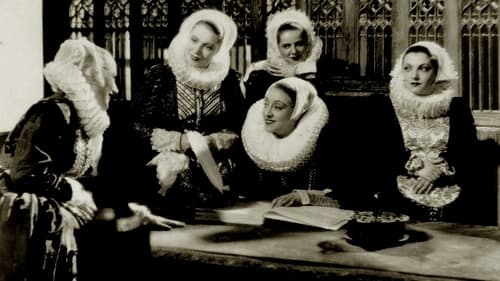
Director
Flanders, Hispanic Monarchy, 1616. The inhabitants of the small town of Boom are busy organizing the annual local festivities when the arrival of the Duke of Olivares, who rules the country on behalf of the King Philip III of Spain, is announced. While the male citizens cowardly surrender to panic like rats on a sinking ship, the brave female citizens, led by the bold wife of the burgomaster, decide to become the best hosts the Spaniards can ever meet.
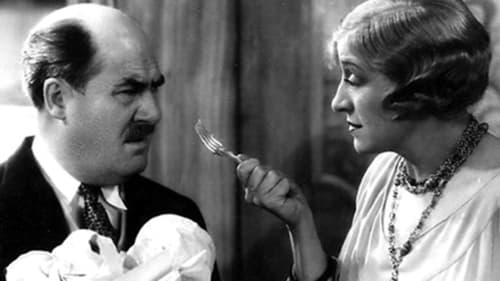
Scenario Writer
Mr. and Mrs. Noblet run a boarding house on the French Riviera. One day, they are led by circumstances to welcome a little boy Pierre, whose father is in jail, into their home. Which makes Louise Noblet all the happier as she can't have children herself. But, after a while, Pierre's father is released from prison and reclaims his son... Time passes and Pierre, now a young adult, lives in Paris more or less on the wrong side of the law. He has a mistress, Nelly, who does not say no to other men's money... Louise, who still loves Pierre as her own son, wants only one thing - to help him get by.

Screenplay
Mr. and Mrs. Noblet run a boarding house on the French Riviera. One day, they are led by circumstances to welcome a little boy Pierre, whose father is in jail, into their home. Which makes Louise Noblet all the happier as she can't have children herself. But, after a while, Pierre's father is released from prison and reclaims his son... Time passes and Pierre, now a young adult, lives in Paris more or less on the wrong side of the law. He has a mistress, Nelly, who does not say no to other men's money... Louise, who still loves Pierre as her own son, wants only one thing - to help him get by.

Director
Mr. and Mrs. Noblet run a boarding house on the French Riviera. One day, they are led by circumstances to welcome a little boy Pierre, whose father is in jail, into their home. Which makes Louise Noblet all the happier as she can't have children herself. But, after a while, Pierre's father is released from prison and reclaims his son... Time passes and Pierre, now a young adult, lives in Paris more or less on the wrong side of the law. He has a mistress, Nelly, who does not say no to other men's money... Louise, who still loves Pierre as her own son, wants only one thing - to help him get by.

Director
Pierre , a young lawyer, has enormous debts due to his mistress Florence and her whims of luxury life. Pierre has gone too far and put the family firm in jeopardy. They ask him to expatriate. To avoid scandal, Pierre joins the Foreign Legion. In Morocco, near the desert, Pierre goes with his comrades of the Legion to a bar-restaurant-brothel, owned by a shady character, Mr. Clement . Clement lives more or less with Ms.Blanche who is a fortune teller with cards, as a hobby. But Clement is also after his girls now and then. Pierre is still obsessed with Florence but he meets Irma , one of Clement's girls, who is the double of Florence except for hair color. Irma has had an accident and has lost part of her memory at a certain point of her recent past, and Pierre slowly persuades himself she is Florence, but cannot remember it. Advised by Ms.Blanche, Irma finally accepts to act as if she was Florence because she is falling in love with Pierre.
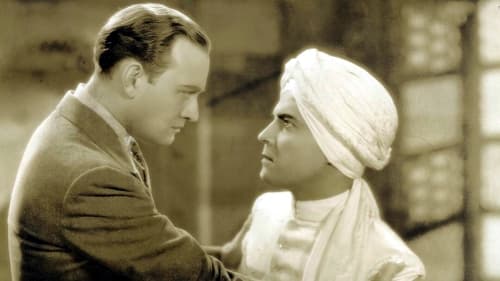
Director
An Indian jewel merchant goes from penniless to wealthy in this story about gratitude.

Director
French-language version of "The Big House" (MGM, 1930), with Charles Boyer in Chester Morris's role, filmed by MGM parallel to the English-speaking version, at a time when good subtitles weren't yet in use.
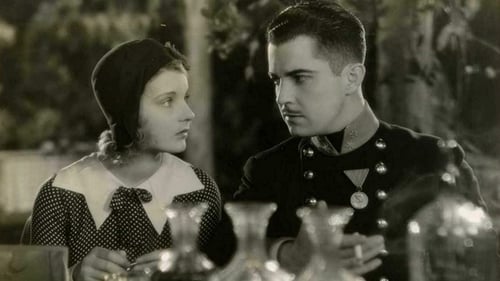
Director
An Austrian soldier must choose between a wealthy fiancee and a new girl who takes his fancy.
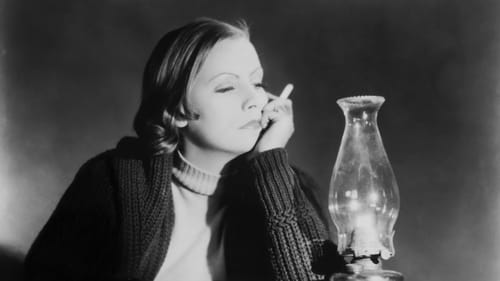
Director
A young woman reunites with the father she's not seen since early childhood, also falls in love with a sailor who wishes to marry her, and eventually is forced to reveal to each man about her dark past. (NOTE: This is the German language version.)

Director
French version of MGM romance, His Glorious Night: A princess in the old Austro-Hungarian empire rejects her arranged marriage and falls, instead, for a dashing cavalry captain.

Director
Theodor Shall is cast as handsome Lieutenant Kovacs, the sweetheart of the lovely Princess Olympia. When the princess' snooty mother breaks up the romance, the embittered Kovacs threatens to tell the world that he has "ruined" the girl (not true!), making her unfit for marriage. To ensure his silence, the Lieutenant is promised a night alone with Olympia, just before the wedding. It is at this point that Kovacs proves he's a gentleman after all by marrying the Princess, which is what he intended to do all along.

Director
A group of people who knew each other years before discover that members of the group are being killed off one by one by someone who calls himself (or herself) The Green Ghost. The survivors gather at an old mansion to find out who is doing the killing and why, and discover that the murderer is a member of that very group.

Writer
The plot focuses on Gaillac (Albert Prejean), an electrician employed by the Paris Opera. In love with gorgeous ballerina Suzanne (Gaby Morlay), Gaillac must play second fiddle to Suzanne's wealthy "protector," powerful politician Count Montoire (Henry Roussell). When the Opera personnel go on strike, Gaillac is appointed leader of the strikers, doing his job so well that he is ultimately elected Secretary of Labor in the French cabinet. Now on equal footing with Montoire, Gaillac is at last a "worthy" suitor for Suzanne -- who can't make up her mind between her two well-connected admirers, leading to a political rivalry the likes of which Paris has never seen. This harmless political satire ended up being banned by the French government for undermining "the dignity of Parliament and its ministers". (moviefone.com)

Director
The plot focuses on Gaillac (Albert Prejean), an electrician employed by the Paris Opera. In love with gorgeous ballerina Suzanne (Gaby Morlay), Gaillac must play second fiddle to Suzanne's wealthy "protector," powerful politician Count Montoire (Henry Roussell). When the Opera personnel go on strike, Gaillac is appointed leader of the strikers, doing his job so well that he is ultimately elected Secretary of Labor in the French cabinet. Now on equal footing with Montoire, Gaillac is at last a "worthy" suitor for Suzanne -- who can't make up her mind between her two well-connected admirers, leading to a political rivalry the likes of which Paris has never seen. This harmless political satire ended up being banned by the French government for undermining "the dignity of Parliament and its ministers". (moviefone.com)
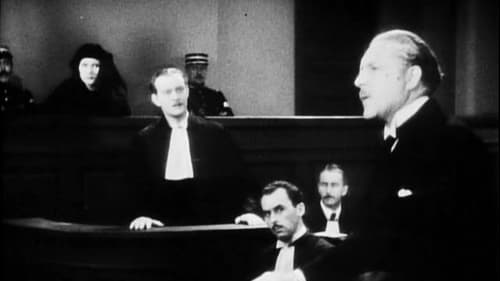
Director
An unhappily married woman is caught up in scandal and murder when her affection toward a young man is misinterpreted.

Producer
A silent adaptation of the novel by French writer Émile Zola.

Director
A silent adaptation of the novel by French writer Émile Zola.

Writer
Gribiche, a young boy whose mother is a war widow, gets adopted by a rich woman. She wants to turn him into a perfect gentleman, but soon he feels unhappy.

Director
Gribiche, a young boy whose mother is a war widow, gets adopted by a rich woman. She wants to turn him into a perfect gentleman, but soon he feels unhappy.

Editor
Feyder's scenario very closely follows Don José's own account of his story and his fatal relation with the gypsy Carmen in the third chapter of Mérimée's short novel.

Screenplay
Feyder's scenario very closely follows Don José's own account of his story and his fatal relation with the gypsy Carmen in the third chapter of Mérimée's short novel.

Director
Feyder's scenario very closely follows Don José's own account of his story and his fatal relation with the gypsy Carmen in the third chapter of Mérimée's short novel.

Adaptation
The suffering and rebellion of 12-year-old François Lepic, nicknamed "Poil de Carotte" by his mother, who hates him. Occupied with the council elections, his father appears unaware that the young boy is increasingly tempted by suicide.
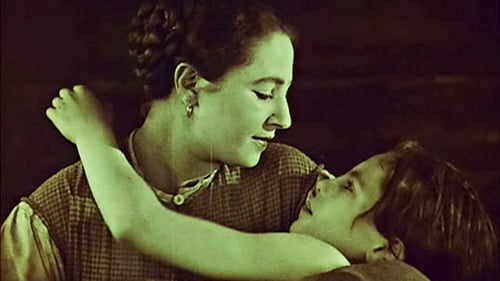
Art Direction
A young boy living in the Swiss Alps struggles to come to terms with his mother's death and his father's remarriage which brings a new mother and step-sister into his family.

Editor
A young boy living in the Swiss Alps struggles to come to terms with his mother's death and his father's remarriage which brings a new mother and step-sister into his family.

Writer
A young boy living in the Swiss Alps struggles to come to terms with his mother's death and his father's remarriage which brings a new mother and step-sister into his family.

Director
A young boy living in the Swiss Alps struggles to come to terms with his mother's death and his father's remarriage which brings a new mother and step-sister into his family.

Writer
3 men fall in love with a woman from a window photograph .When they find her living as a recluse in an isolated Hungarian mansion, they decide against a visit because she wouldn't live up to their idealized images of her.

Director
3 men fall in love with a woman from a window photograph .When they find her living as a recluse in an isolated Hungarian mansion, they decide against a visit because she wouldn't live up to their idealized images of her.

Producer
Jérôme Crainquebille, is an ageing vegetable seller who has sold groceries from his cart in in Paris for over 40 years. One day, he is harassed by a policeman who insists that he moves on. When he protests, Crainquebille is arrested, supposedly for swearing at the policeman.

Art Direction
Jérôme Crainquebille, is an ageing vegetable seller who has sold groceries from his cart in in Paris for over 40 years. One day, he is harassed by a policeman who insists that he moves on. When he protests, Crainquebille is arrested, supposedly for swearing at the policeman.

Writer
Jérôme Crainquebille, is an ageing vegetable seller who has sold groceries from his cart in in Paris for over 40 years. One day, he is harassed by a policeman who insists that he moves on. When he protests, Crainquebille is arrested, supposedly for swearing at the policeman.

Director
Jérôme Crainquebille, is an ageing vegetable seller who has sold groceries from his cart in in Paris for over 40 years. One day, he is harassed by a policeman who insists that he moves on. When he protests, Crainquebille is arrested, supposedly for swearing at the policeman.

Writer
Two men, lost in the desert, meet Queen Antinea, ruler of Atlantis.

Director
Two men, lost in the desert, meet Queen Antinea, ruler of Atlantis.

Director
A modest man who applies for a job in an insurance firm is tormented by the idea that he has made a simple spelling mistake on his application.

Director

Director
An early Gaumont short

Director
Directed by Jacques Feyder.

Director

Director
The famous scientific detective Justin Crécelle and his faithful assistant Walter Jymson seek to halt the deeds of the "Clutching Foot" gang, who attempt to kidnap Hélène, the fiancée of Justin, in both possible and ridiculous ways. The film is a spoof of the Les Vampires serials, with Musidora appearing in one episode in costume.

Director
This silent French film begins with Georges feeling miserable, as he has ambitions of being a great musician but is forced to eke out a living giving lessons. So, he writes a friend to ask his advice. The friend tries to remake Georges and make him a bit of a playboy. However, when it comes to wooing a rich American, the advice is not exactly perfect.

Assistant Director
The story of a how a love-struck young man eventually wins over an initially reluctant woman, charmingly told in shots that depict only their hands and feet.

Un Diplomate
Protéa is the last film directed by Victorin-Hippolyte Jasset, one of the early film pioneers in France. The hero of this film is a female spy, an acrobatic Mata-Hari, played by his favorite actress, Josette Andriot, who wore a characteristic costume of a close-fitting black jersey, two years before Musidora achieved cult status with her similar appearance as Irma Vep. This final masterpiece reflects Jasset's popular style: rhythmic action, fantastic realism, rich visuals, an anarchistic philosophy, a disdain for psychology, and an attention to lighting that earned him the nickname “the Rembrandt of the cinema". Although Jasset died shortly after completion, the film had considerable success and Andriot went on to make four more films in the series with other directors.

Georges Méliès's first attempt at Cinderella was in 1899. That film was extraordinary then for having multiple scenes and a semblance of a narrative; additionally, the use of dissolves as transitions in it influenced other filmmakers for years to do the same. Méliès was the cinema world's preeminent leader then. By 1912, however, that was no longer the case; frankly, as evidenced by this feature, his style had become dated. Moreover, Méliès had begun to adopt techniques from other filmmakers, such as direct cuts instead of dissolves, and there's even a match on action shot during the slipper trying-on scene.














